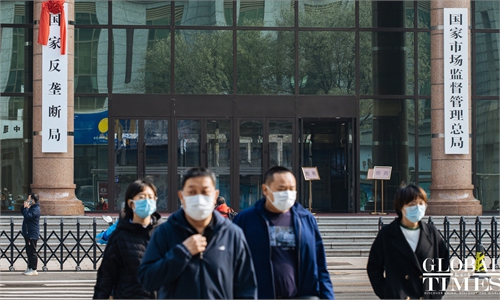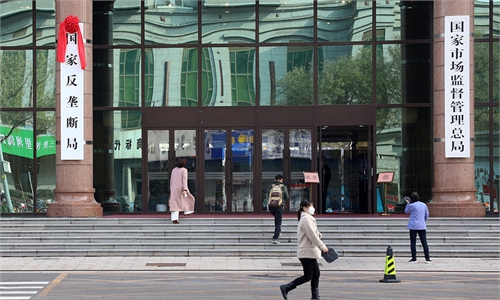
A concept photo of digital city Illustration: VCG
The State Administration for Market Regulation (SAMR), China's top market regulator, is currently promoting revision of the Anti-Unfair Competition Law, following the amendment of the Anti-Monopoly Law last year, aiming to create a fair and impartial market environment, Luo Wen, head of the SAMR, said during a media event on the sidelines of the two sessions in Beijing on Tuesday.
Experts said the law after amendment will continue to focus on creating a more level playing field in booming sectors such as platform industries and the digital economy, where unfair competition has been prevalent in recent years.
While giving a briefing on the administration's implementation of the plans, Luo said that the government is improving the relevant regulations and guidelines, such as the standards for declaration of concentration of undertakings.
"We are strive to make the regulatory rules and law enforcement procedures to be clearer, so that companies of all kinds can catch up with each other and improve together on the track of fair competition," Luo said.
The draft revision of China's Anti-Unfair Competition Law was open for public opinions from November 22 until December 22 in 2022. The law aims to improve the anti-unfair competition rules for the digital economy, prohibiting operators from engaging in unfair competition by using data, algorithms, and platform rules.
To ensure fair competition, Luo said that they will improve the supervision by strengthening the assessment of market competition in key areas such as the digital economy and areas related to the public's livelihood.
In particular, it is necessary to comprehensively use administrative guidance, interviews, penalties and other means to help companies improve their compliance management, Luo said.
Liu Dingding, a veteran industry analyst, told the Global Times on Tuesday that the unfair competition is the most likely to occur at platform economies, which are relatively new and fast booming areas, and the Anti-Unfair Competition Law will continue to focus on these areas.
"Different from the Anti-Monopoly Law, the Anti-Unfair Competition Law focuses on a wider range of industry players, not just the market monopoly but all industry participants," Liu said.
For example, companies using their comparative advantages on capitals and technologies or other elements to offer lower-than-average or free couponsto push competitors out of the market could be involved in unfair competition, Liu said.
Recent years have seen similar cases in the field. For example, Chinese food delivery platform Meituan was fined 3.44 billion yuan ($533.5 million), or 3 percent of its 2020 domestic revenue, by China's top market regulator, SAMR, in October 2021.
Although laws and regulations targeting market monopolies have reduced similar cases, Liu said that a clear and broad law is necessary for industries to develop in a healthy and orderly manner.


